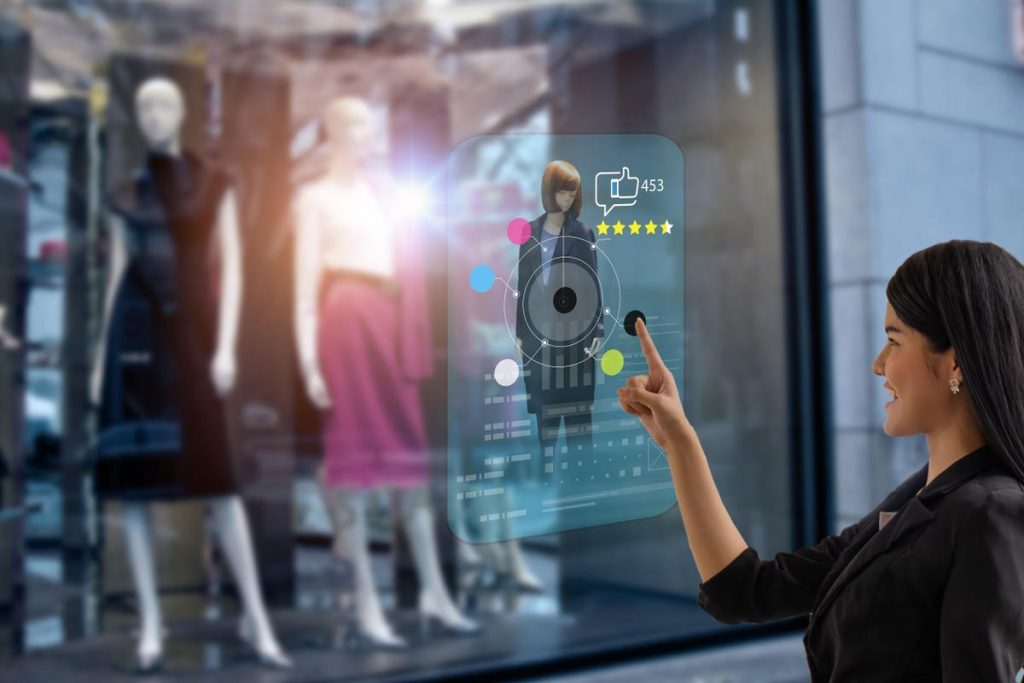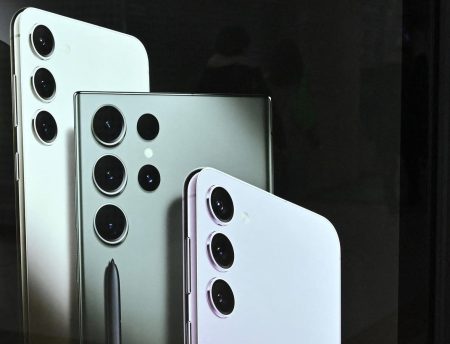The metaverse is emerging as a new platform for fashion and retail, allowing brands to reach consumers through innovative online experiences and immersive digital spaces.
The possibilities are enormous for companies that want to raise brand awareness, improve customer experience, and deepen engagement with their followers. The global apparel market is expected to reach $2.25 trillion by 2025 — and smart brands are leveraging the latest technologies to gain a competitive edge.
Let’s explore some of the ways the future internet will transform how we shop online and engage with retail brands.
AR-Assisted “Virtual Try-On” Experiences
Today, we are already seeing standard web2 sites and apps incorporate immersive technologies — largely using augmented reality (AR) to provide customers with a more detailed view of a product. Brands are using AR to simplify the customer journey, reduce pain points, and increase conversion rates.
On retailers’ sites, customers can use AR tools to project products onto their bodies or into their homes. For example, the IKEA Place app lets customers digitally render furniture and accessories into their homes to see if things fit (and go with their decor) before they buy.
Forwarding-Thinking Brands Are Creating a Presence in the Metaverse
Innovative brands are moving into the metaverse with personalized, immersive, and interactive virtual stores, lands, and brand experiences.
Nike is a real leader in the metaverse space with their part-game, part-showroom Nikeland experience. Nikeland features Nike buildings, arenas, and fields, as well as mini-games and a virtual showroom with the latest digital products.
Fashion brand Forever 21 has created a metaverse space in Roblox. Within this virtual experience, users can play a game that simulates running their own virtual Forever 21 store.
Web3 brands are also setting up physical stores to sell their merchandise and deliver web3-related educational experiences (like how to set up a crypto wallet).
How Blockchain Will Impact Retailers
Blockchain technology will help to increase transparency in the retail industry by providing a secure and reliable way to track the origin and journey of products.
This will help to improve transparency, so companies can increase customer trust and loyalty. It will also help brands reduce costs associated with supply chain management and give consumers more control over their data.
How Retail Brands Are Leveraging NFTs
Innovative retailers are already launching collectible NFTs, enabling customers to purchase unique, limited-edition items that can be stored and traded digitally.
NFTs offer an unprecedented level of customization and personalization, making them an ideal tool for retailers looking to differentiate their products from the competition and reward loyal customers.
A brand’s NFTs can also act as membership tokens, giving holders exclusive access to communities, content, contests, or products. Some companies are using a “token gating” approach to restrict access to content.
The makers of Glenfiddich whisky recently sold 15 limited edition bottles — each one accompanied by its own NFT — for $18,000 each. Buyers received a special NFT art piece of the bottle as their certificate of ownership. All 15 bottles sold in seconds once they were released.
Read more about these topics in my new book, The Future Internet: How the Metaverse, Web 3.0, and Blockchain Will Transform Business and Society. And don’t forget to subscribe to my newsletter and follow me on Twitter, LinkedIn, and YouTube for more on the future trends in business and technology.
Read the full article here










